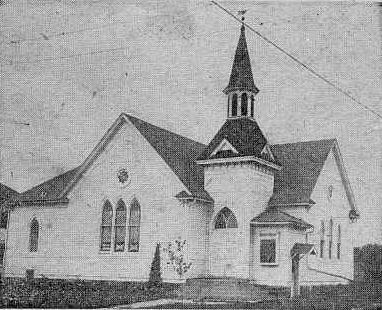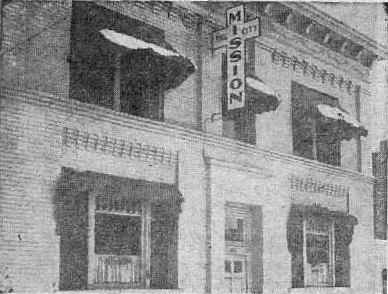
No. 11 Normal Methodist church
William Jennings Bryan, who spotlighted Lincoln from the nineties on, died in 1926, shortly after the famous Scopes trial in Tennessee. He had gone to that state to thunder disapproval of John T. Scopes, who was being tried for teaching evolution, contrary to Tennessee law. It in believed that Bryan's death was hastened by his vigorous efforts in behalf of fundamentalism.
It is interesting to gaze upon this in modest church--Normal Methodist, 55th and South--which Bryan attended after his removal to Fairview, and reflect that here, doubtless, were built up the religious convictions which accompanied him--perhaps hastened him--to his grave. Not always did he occupy one of the old fashioned stained oak benches. Often he spoke front the carved pulpit, his hand upon the old metal clasped Bible, his pontifical and mellow voice filling the little church.
What W. J. Bryan believed he believed with great sincerity and articulateness. First intimations of his gifts as an orator came with the impassioned silver speech in 1896; in which he declared: "You shall not press down upon the brow of labor this crown of thorns: you shall not crucify mankind upon a cross of gold." His contemporaries did not always agree with the Great Commoner, but they could not do otherwise than respect his sincerity. He fought for the silver standard, for peace, for prohibition. for fundamentalism, often losing but never giving up the fight.
His lion's face and mane, his broad hat, his golden voice, are gone, but gashes of his reform ax may still be seen on the surface of the commonwealth.
